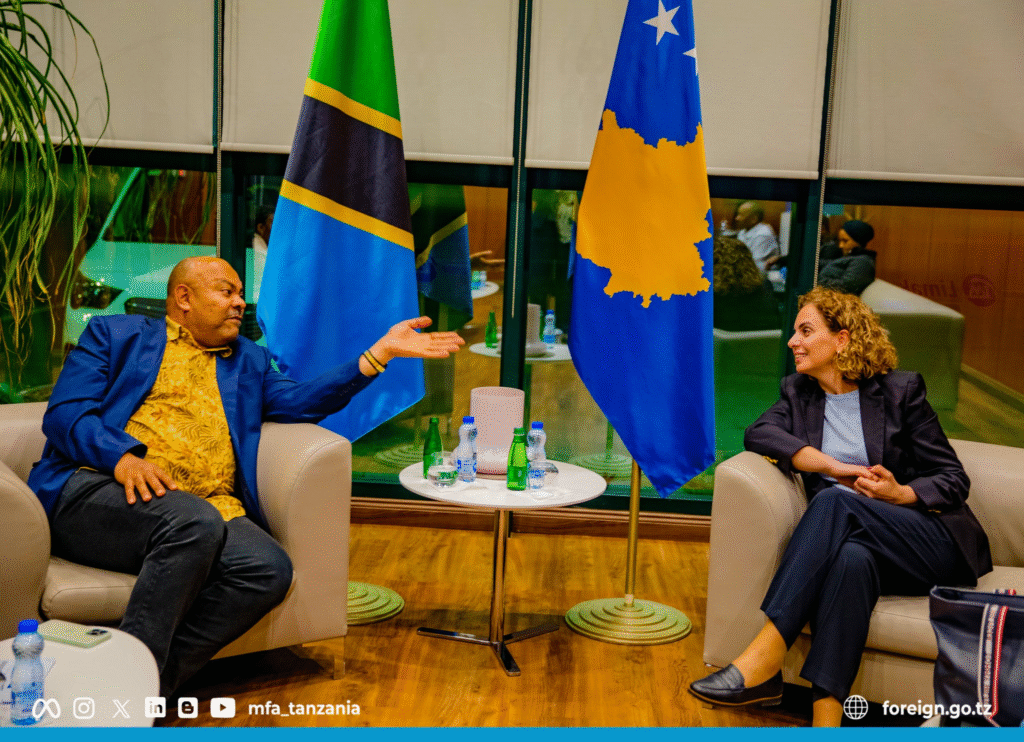Kenya’s Principal Secretary for Foreign Affairs, Dr. Korir Sing’oei, has defended the government’s recent decision to formally recognize the Republic of Kosovo, citing a growing trend of African nations embracing deeper diplomatic ties with the Balkan nation.
Sing’oei’s remarks follow an ongoing official visit by Tanzania’s Foreign Minister, Ambassador Mahmoud Thabit Kombo, to Kosovo—viewed as a strong signal of shifting continental attitudes towards Kosovo’s independence and sovereignty.
“For those claiming Kenya’s recognition of Kosovo was unmerited,” PS Sing’oei posted on X, referencing Kombo’s high-level engagements in Pristina, “this is a clear sign of a changing tide.”
Kenya’s recognition of Kosovo was made official on March 26, 2025, through a presidential proclamation signed by President William Ruto, asserting the country’s support for Kosovo’s right to self-determination.
Kosovo, which declared independence from Serbia in 2008, has since been recognized by over 100 United Nations member states. However, the decision has triggered mixed reactions both at home and internationally.
Serbia Condemns the Move
In a strongly worded statement, the Serbian Ministry of Foreign Affairs condemned Kenya’s move, labeling it “regrettable” and a breach of UN Security Council Resolution 1244. Belgrade accused Nairobi of undermining regional peace and ignoring long-standing ties with Serbia.
“This move sets a regrettable precedent in the traditionally friendly relations between Serbia and Kenya,” the statement read, warning of diplomatic consequences.
Serbia argued that recognition of Kosovo disregards international law, claiming that 28 nations have withdrawn recognition in recent years. It also dismissed the 2010 ICJ advisory opinion, maintaining that Kosovo’s unilateral declaration of independence lacks legitimacy.

While Serbia expressed displeasure, Tanzania’s engagement with Kosovo has added weight to Kenya’s position.
Ambassador Kombo is attending the Third International Conference on Women, Peace, and Security in Pristina (June 2–3) and is expected to hold bilateral meetings with President Vjosa Osmani Sadriu and Foreign Minister Donika Gërvalla-Schwarz.
The Tanzanian delegation is also set to meet representatives of the Kosovo-American Chamber of Commerce and participate in dialogues on peacebuilding and regional cooperation.
Kenya’s move is seen as aligning with a more assertive and globally engaged foreign policy under President Ruto, signaling Nairobi’s intent to diversify diplomatic partnerships beyond traditional allies.
PS Sing’oei emphasized that Kenya is simply recognizing realities on the ground, where Kosovo functions as a sovereign state with a growing network of bilateral relations.
As Serbia promises to step up its counter-recognition diplomacy, Kenya joins a list of African nations—such as Burkina Faso, The Gambia, and Eswatini—that have recently reaffirmed or initiated diplomatic relations with Kosovo.
With diplomatic waters now stirred, Kenya finds itself at the intersection of historical alliances and contemporary global realignments—a balancing act that will test its resolve in navigating shifting international currents.



















